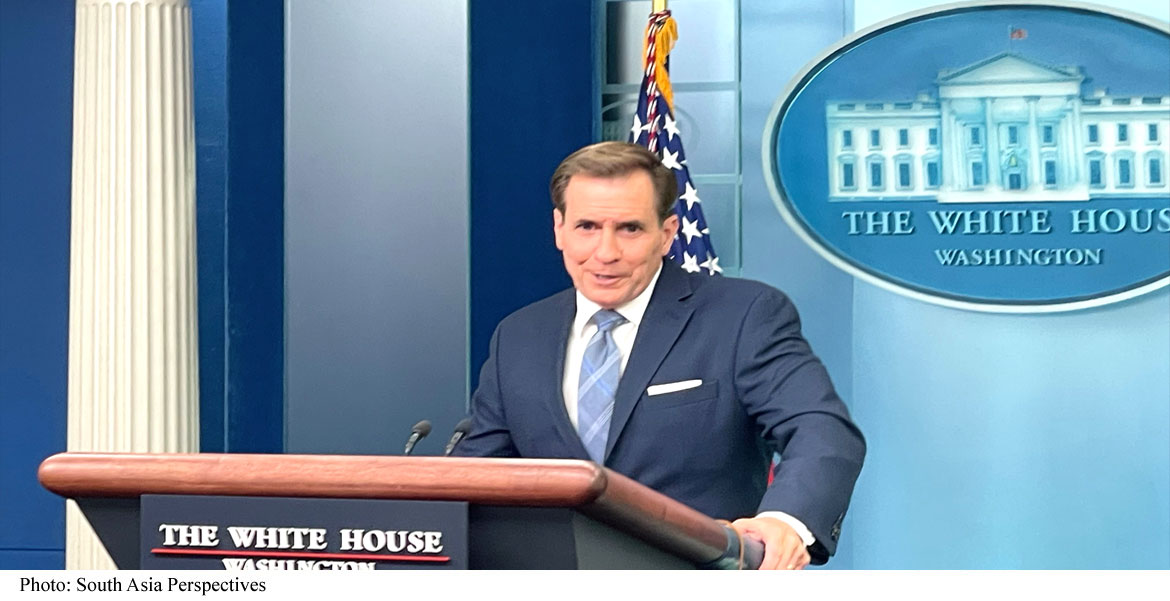The United States reiterated its firm position over the importance of respecting human rights and holding a free and fair general election in Bangladesh, the South Asian nation that has seen an erosion of its democracy over the past decade.
John Kirby, Coordinator for Strategic Communications at the National Security Council in the White House on Monday said, “we’ve been consistent on the need for Bangladesh to hold free and fair elections,” while responding to a question by the South Asia Perspectives.
“To demonstrate that commitment, the State Department, as you know, recently announced a 3C visa policy that would restrict visa issuances to individuals who undermine Bangladesh’s elections”, he also added.
Asked about a recent letter issued by six Congressmen to President Joe Biden calling for actions against the Hasina government for its gross violations of human rights, Kirby said he is “aware of the communication.”
The letter, which was signed by US Members of Congress Scott Perry, Barry Moore, Warren Davidson, Bob Good, Tim Burchett and Keith Self, caused an uproar in Bangladeshi political circles. On June 2, Congressman Bob Good published the letter on his website, answering critics who had claimed the letter was fabricated.
In a separate briefing at the State Department, Principal Deputy Spokesperson Vedant Patel told South Asia Perspectives that “the US announced the new policy that allows us to impose visa restrictions on Bangladeshi individuals, including current or former Bangladeshi officials, pro-government or opposition political party members, and others believed to be responsible for or complicit in undermining the democratic election process in Bangladesh.”
The Bangladesh government found itself under scrutiny after the US announced in late May its new visa policy for the country that focuses on promoting free, fair, and peaceful national elections.
“Under this policy, the United States will be able to restrict the issuance of visas for any Bangladeshi individual, believed to be responsible for, or complicit in, undermining the democratic election process in Bangladesh”, Secretary of State Antony J Blinken said on May 24.
In public, the new U.S. policy was initially greeted by both the government and opposition parties in Bangladesh. In a June 3 speech, however, Prime Minister Sheikh Hasina blasted the US move and said, “We will not be dependent on others. Who will not give us visas, who will impose sanctions on us… there is no point in worrying about such things.
In this context, the letter from six US lawmakers increased the pressure on PM Hasina who presided over two widely criticized elections in 2014 and 2018.
The Congressmen urged Biden to “take urgent action to stop the human rights abuses by the government of Prime Minister Sheikh Hasina.”
They also called upon the President “to give the people of Bangladesh the best possible chance for free and fair parliamentary elections to be scheduled to be held this fall.”
“We request appropriate measures to give Bangladesh their best chance for free elections, including stricter individual sanctions, banning Bangladesh law enforcement and military personnel from participating in UN peacekeeping missions,” the letter said.

